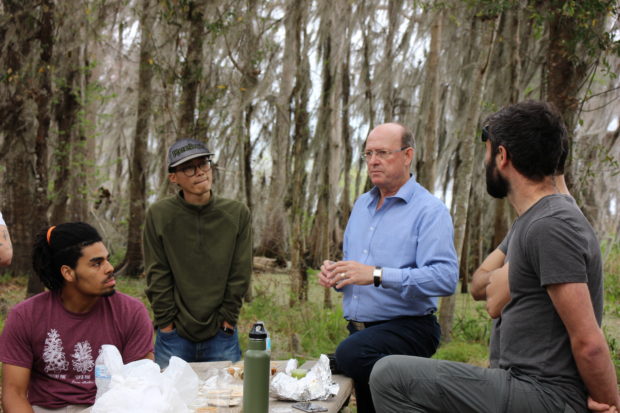Dr. Mike Wingfield, founder of the Forestry and Agricultural Biotechnology Institute at the University of Pretoria, visited the University of Florida’s School of Forest Resources and Conservation to deliver a lecture during the John Gray lecture series. In his lecture on the global threats of invasive forests pests, Dr. Wingfield bemoaned the tendency of the European Union’s open borders to allow invasive insects to move around without quarantines or inspections.
Ironically, only days later Business Insider reported that emergency talks are being held in Britain due to the realization that after Brexit all British wooden shipping pallets will be treated as imports and likely refused at the new border due to the threat of introducing wood-boring pests to Europe.
Moving untreated wood from one location to another is a frequent cause of bark and ambrosia beetle introductions, including the emerald ash borer, which continues to spread across the US primarily through firewood.
The UF/IFAS SFRC Forest Entomology lab advocates for a global system of sentinel gardens that would provide early warnings of threats from invasive wood-boring pests.

